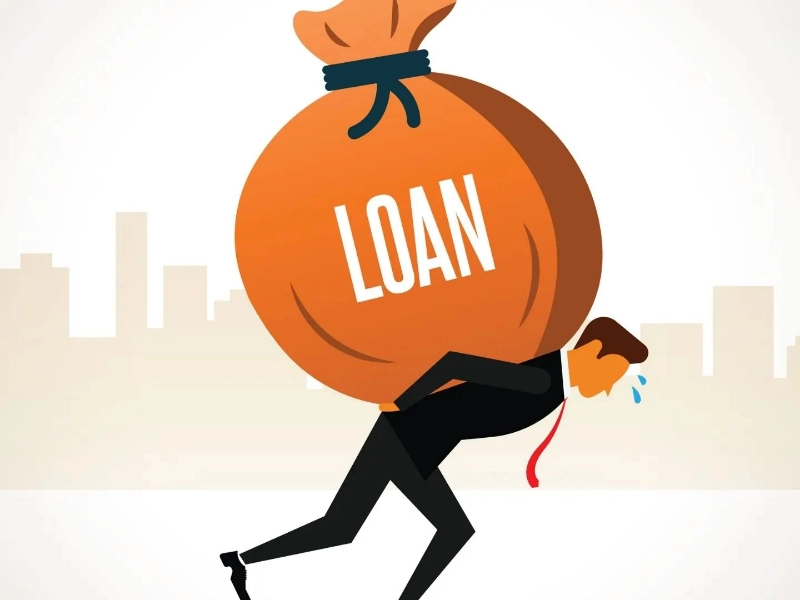Taking out a personal loan is a big obligation that has to be planned carefully. Monthly payments are affected by the different repayment terms offered by lenders, and interest rates are usually fixed for a period of one to seven years. Seek out lenders who allow you to prequalify without affecting your credit score, and evaluate loan offers with varying terms, prices, and restrictions.

 A strong financial foundation demands dedication and hard work. However, the benefit is a safe future for you and your loved ones. Important initial actions toward reaching your goals include paying off debt, examining your credit score, and setting aside money for the future.
Compared to mortgages or home equity loans, personal loans often have set interest rates and are accessible for a shorter period of time. Usually, a borrower's debt-to-income ratio and credit score determine eligibility. In order to determine if a borrower can afford further payments and how responsibly they have managed past debt, lenders also review payment histories.
When examining debtors, many lenders also take into account other elements like assets, employment status, and income. An application for a personal loan frequently results in a hard credit inquiry. Your credit may be affected by a personal loan for several months following its disbursement. On the other hand, timely monthly payments might raise your credit score. Repayment lengths for personal loans are typically predetermined and can extend up to seven years.
A strong financial foundation demands dedication and hard work. However, the benefit is a safe future for you and your loved ones. Important initial actions toward reaching your goals include paying off debt, examining your credit score, and setting aside money for the future.
Compared to mortgages or home equity loans, personal loans often have set interest rates and are accessible for a shorter period of time. Usually, a borrower's debt-to-income ratio and credit score determine eligibility. In order to determine if a borrower can afford further payments and how responsibly they have managed past debt, lenders also review payment histories.
When examining debtors, many lenders also take into account other elements like assets, employment status, and income. An application for a personal loan frequently results in a hard credit inquiry. Your credit may be affected by a personal loan for several months following its disbursement. On the other hand, timely monthly payments might raise your credit score. Repayment lengths for personal loans are typically predetermined and can extend up to seven years.
 Personal loans can be a smart method to fund significant purchases or cover unforeseen needs, depending on your income and creditworthiness. They often have fixed monthly payments, which can aid in budgeting, and lower interest rates than credit card debt.
Your credit score and debt-to-income ratio—a measurement of how much you pay each month for other debts relative to your income—will determine your eligibility for a personal loan, which normally doesn't require collateral. When choosing to take out a personal loan, it's crucial to thoroughly weigh your options and be prepared financially for further debt.
Additionally, you might discover that some lenders provide special benefits to their clients, such as autopay savings or zero-fee loans. To ensure you're getting the best deal, you should constantly check the interest rates and expenses associated with personal loans. Furthermore, because a personal loan lender performs a thorough investigation when you apply, it may have a short-term negative impact on your credit score. But if you pay your bills on time each month, your credit score ought to rise.
Personal loans can be a smart method to fund significant purchases or cover unforeseen needs, depending on your income and creditworthiness. They often have fixed monthly payments, which can aid in budgeting, and lower interest rates than credit card debt.
Your credit score and debt-to-income ratio—a measurement of how much you pay each month for other debts relative to your income—will determine your eligibility for a personal loan, which normally doesn't require collateral. When choosing to take out a personal loan, it's crucial to thoroughly weigh your options and be prepared financially for further debt.
Additionally, you might discover that some lenders provide special benefits to their clients, such as autopay savings or zero-fee loans. To ensure you're getting the best deal, you should constantly check the interest rates and expenses associated with personal loans. Furthermore, because a personal loan lender performs a thorough investigation when you apply, it may have a short-term negative impact on your credit score. But if you pay your bills on time each month, your credit score ought to rise.
 In some cases, using personal loans for investments can be advantageous. It's crucial to thoroughly consider the benefits and drawbacks, though. First, think about whether the return on your investment will outweigh the interest you pay on your loan. After that, be sure to compare rates since those with good credit frequently get the best deals.
An additional aspect to take into account is the potential for a fall in your investment, which could result in longer-than-anticipated debt. Finally, think about whether you can still afford your loan payment in the event of an unexpected financial crisis.
Although achieving financial stability can be difficult, small, regular efforts can lay a solid foundation. You may strengthen your financial situation and create the foundation for long-term success by putting these eight wise financial practices into practice. Begin right now! To get these suggestions delivered right to your email, click here.
In some cases, using personal loans for investments can be advantageous. It's crucial to thoroughly consider the benefits and drawbacks, though. First, think about whether the return on your investment will outweigh the interest you pay on your loan. After that, be sure to compare rates since those with good credit frequently get the best deals.
An additional aspect to take into account is the potential for a fall in your investment, which could result in longer-than-anticipated debt. Finally, think about whether you can still afford your loan payment in the event of an unexpected financial crisis.
Although achieving financial stability can be difficult, small, regular efforts can lay a solid foundation. You may strengthen your financial situation and create the foundation for long-term success by putting these eight wise financial practices into practice. Begin right now! To get these suggestions delivered right to your email, click here.